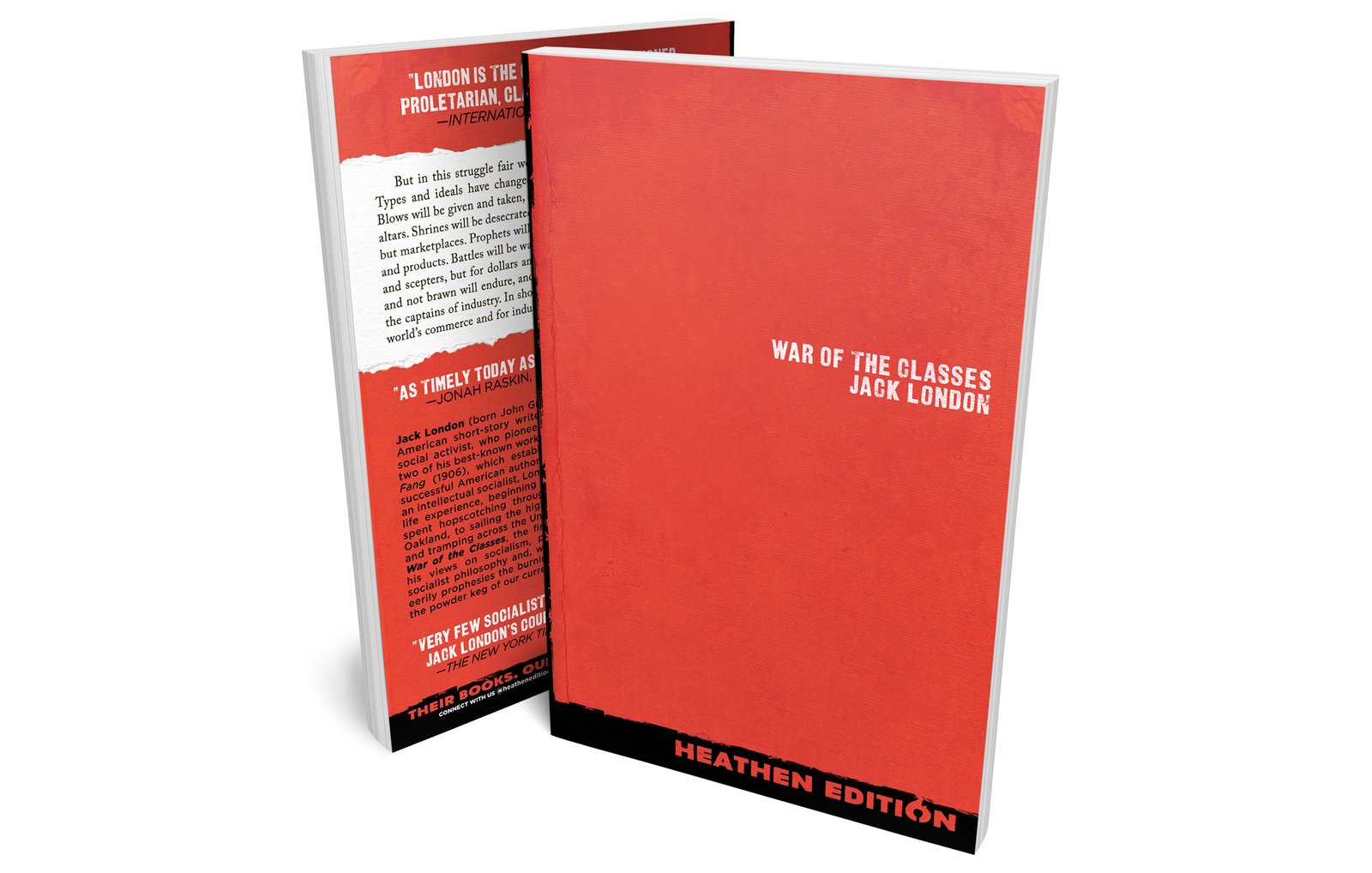No products in the cart.

- 2 Minute Read
So strongly about socialism did Jack London feel that he would sign his letters “Yours for the Revolution.”
Think about that for a second.
Let it sink in.
Imagine receiving an e-mail from someone today signed “Yours for the Revolution.”
Or maybe you just received one five seconds ago because we live in an age where someone somewhere is likely already capitalizing on that phrase to sell you stuff. Like a book.
Maybe that’s the problem with today’s world, it lacks that level of commitment to any problem: Yours for the Revolution.
If you were to judge us by what we sign off with most, we’re fully committed to 😂 👀. Because capitalism, right? The very thing London is warning about in these essays. Be careful he bellows from the cusp of the 20th century, yet here we are—well into the 21st—everyone communicating with emojis instead of words, as if our language is reverting to a primitive state. Evidence that capitalism is “Yours for the Devolution,” perhaps? Regardless the volution, London seemed sure of one thing: “…change of direction must be either toward industrial oligarchies or socialism. Either the functions of private corporations will increase till they absorb the central government, or the functions of government will increase till it absorbs the corporations. Much may be said on the chance of the oligarchy.”
Much, indeed. What with corporate lobbyists, court-approved monopoly-spawning mergers, no-bid government contracts, and primetime Senate hearings the line between which of the two has increased the most at present seems more blurred each day. That’s why these essays seem so prescient—not because sermons of equitability are still being preached, but because we’ve traded London’s Rockefeller and Morgan for our Bezos and Zuckerberg. Which is to say that while much in the world has changed since London originally penned these essays over a century ago, not much has changed at all.
When you consider these essays as a whole revolving through the View-Master® of now, maybe it’s not more socialism that we require, as London proffers, but less crony capitalism. Expanding on the main essays with asides like the shady dealings of a railroad magnate named Huntington and the origins of terms like Hooleyism makes you realize that observation was as true for London’s new century as it is for ours.
As for the text, London wrote for the masses so his text overall is a short, breezy read. However, he was still a writer of his time and his original text is peppered with the evidence, so we’ve updated a few instances of archaic and hyphened words to reflect their modern usage.
Simple though the text seems, the great majority of our work for this edition lies in its nearly two hundred footnotes. We resolved to leave no stone unturned as we cross-checked London’s vast array of sources and researched his long list of quoted names. His original text also included eight footnotes of its own and to differentiate between those and our numbered additions, we have set the originals out using asterisks.*
Finally, in case you’re not sure where we stand in this debate, we have prepared this rhyme: Heathens we be, capitalists all three.
P.S. Buy our book. Or read it online for free. Just read. #literaturepositive
@heatheneditions #heathenedition
Copyright © 2025 Heathen Creative, LLC. All rights reserved.

